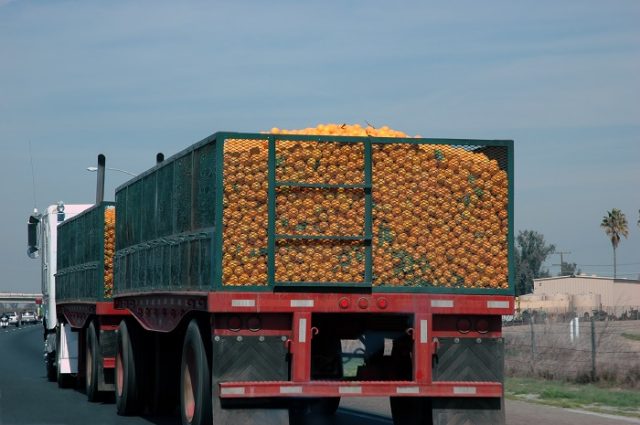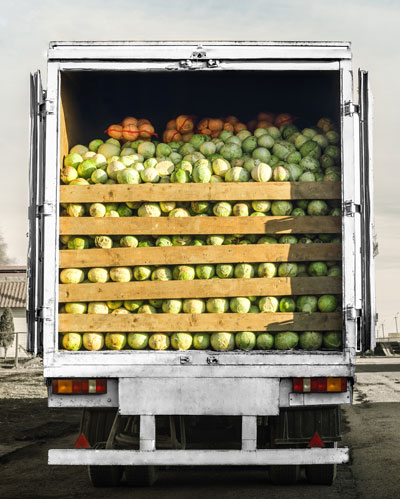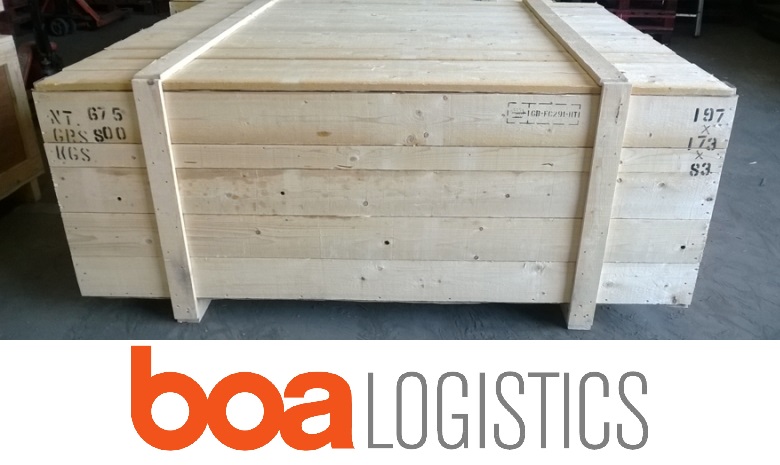Proper transport of fresh produce from farm to market reduces the potential for microbial contamination. Within the transportation chain, it is the responsibility of all parties involved to communicate and maintain the quality and safety of the produce while in transit.
Cross-Contamination
Every time a product gets moved, there is a chance of cross-contamination and/or damage. A real concern comes from cross contamination from other foods, non-foods and surfaces can occur during loading, unloading, storage and transportation.
Sanitation Requirements at Each Step
When loading, unloading, pulling in and out of storage, cross-docking and during transport, there are several considerations to take to protect the integrity of the produce.
- Ensure all transportation vehicles being used are well maintained and kept clean.
- Inspect trucks and/or transport cartons for cleanliness, odors and debris. Do this BEFORE loading the produce.
- Check if any prior load carried in the vehicle is not a risk for contamination. If there is a risk of contamination from the prior load, be sure to have it cleaned well before loading produce.
- Maintain proper temperatures – Including storage, docks, trailers and/or bobtail.
- Avoid mixed loads with incompatible refrigeration requirements.
- Be sure that transporters are aware of all special instructions and temperature requirements.
- Check that the loading area allows proper refrigerated air circulation – Look for ducted floors and a chute if these are required for the transportation vehicle.
- Load produce in transport cartons to minimize damage and reduce the potential for contamination.
- Workers involved in the loading and unloading during transit should practice good hygiene and have a good sense of sanitation requirements.
- Inspectors, buyers and other visitors should also comply with established hygienic practices. Examples include washing hands and using a hair net.
BOA is experienced in temperature controlled freight, and understands what it takes to do both FTL and LTL Refrigerated Shipments.



